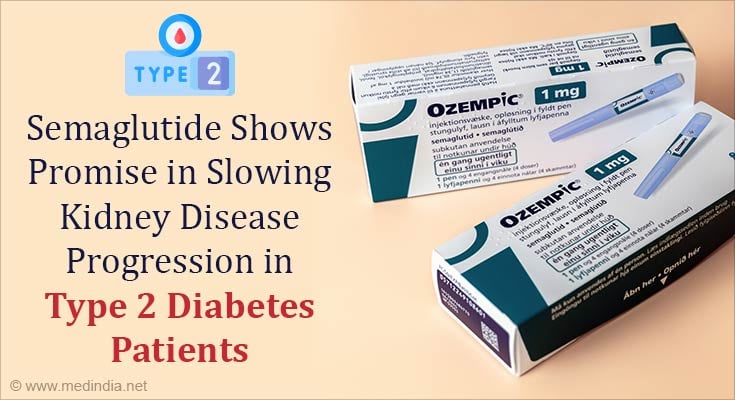- Semaglutide, in the FLOW trial, significantly reduces kidney disease progression in type 2 diabetes patients by 24%
- Confirmatory secondary endpoints reinforce semaglutide’s efficacy in mitigating cardiovascular events and all-cause mortality
- Novo Nordisk anticipates semaglutide to emerge as a premier treatment for individuals with type 2 diabetes and chronic kidney disease
In a recent development, the results from the phase FLOW trial have unveiled the potential of semaglutide in mitigating the progression of kidney disease in patients grappling with type 2 diabetes. The findings, presented by Diana Ernst, underscore the efficacy of semaglutide in reducing the risk of kidney disease-related events, cardiovascular mortality, and kidney death by an impressive 24% compared to a placebo (1✔ ✔Trusted Source
The rationale, design and baseline data of FLOW, a kidney outcomes trial with once-weekly semaglutide in people with type 2 diabetes and chronic kidney disease
).
The FLOW Trial: Revealing Semaglutide’s Potential
The FLOW trial, a randomized, double-blind, parallel-group, placebo-controlled endeavor (ClinicalTrials.gov Identifier: NCT03819153), delved into the effects of semaglutide 1mg, a glucagon-like peptide-1 (GLP-1) receptor agonist, as an adjunct to standard care in impacting kidney outcomes. This trial enrolled 3533 participants diagnosed with type 2 diabetes and chronic kidney disease (CKD), based on specific criteria related to estimated glomerular filtration rate (eGFR) and urinary albumin-to-creatinine ratio (UACR).
The major efficacy endpoint of the study was the time to the first occurrence of a composite primary endpoint event, encompassing various markers indicative of kidney disease progression and mortality due to kidney or cardiovascular issues. Notably, semaglutide 1mg emerged as a potent mitigator, reducing the risk of kidney disease progression, cardiovascular events, and kidney-related mortality. This reduction in risk was attributed to both the CKD and cardiovascular components of the composite endpoint.
Confirmatory Secondary Endpoints: Strengthening the Case for Semaglutide
In addition to the primary efficacy outcome, semaglutide showcased superiority over placebo in several confirmatory secondary endpoints. These included the annual rate of change in eGFR, the time to occurrence of major adverse cardiovascular events (nonfatal myocardial infarction, nonfatal stroke, cardiovascular death), and the time to all-cause death. Such comprehensive efficacy across secondary endpoints bolsters the case for semaglutide as a multifaceted therapeutic option for patients grappling with type 2 diabetes and CKD.
Martin Holst Lange, executive vice president for Development at Novo Nordisk, expressed enthusiasm regarding the FLOW trial results, emphasizing semaglutide’s potential to become the premier GLP-1 treatment for individuals facing the dual burden of type 2 diabetes and chronic kidney disease. With approximately 40% of type 2 diabetes patients encountering chronic kidney disease, the implications of these findings are far-reaching, promising enhanced therapeutic options and improved outcomes for a substantial patient population.
The FLOW trial heralds a significant milestone in the realm of diabetes management and nephrology, revealing semaglutide’s remarkable potential in curbing the progression of kidney disease in patients with type 2 diabetes. As additional findings from the trial are slated for presentation at scientific meetings this year and regulatory approval for label expansion of Ozempic (semaglutide) looms on the horizon in 2024, the clinical landscape stands poised for transformative advancements in the management of this complex interplay between diabetes and renal health.
Reference:
- The rationale, design and baseline data of FLOW, a kidney outcomes trial with once-weekly semaglutide in people with type 2 diabetes and chronic kidney disease – (https://pubmed.ncbi.nlm.nih.gov/36651820/)
Source-Medindia



